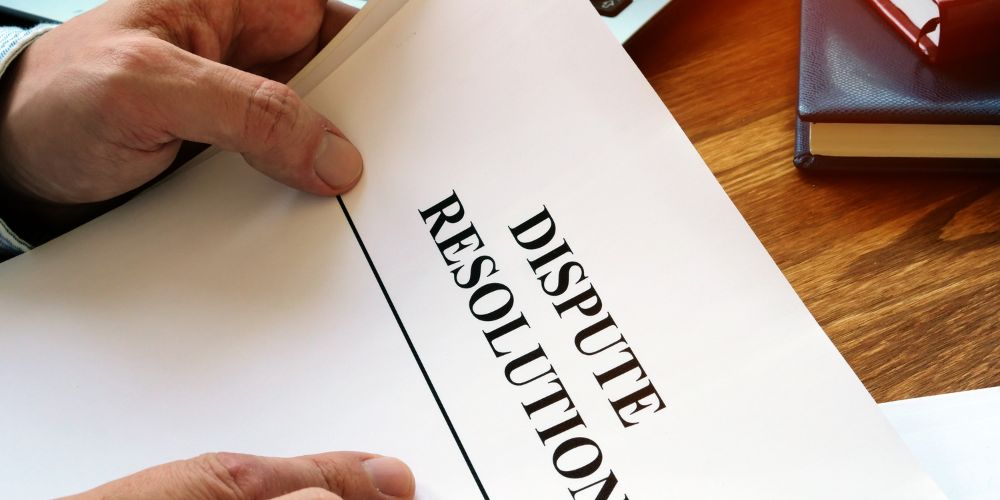Navigating the Experian dispute resolution process is essential for maintaining an accurate credit report. Errors on your credit report can impact your financial health, so addressing them promptly is crucial. This guide will walk you through the steps to resolve discrepancies, providing you with the knowledge and tools necessary to correct any mistakes. Whether you’ve identified a significant error or a minor inaccuracy, understanding how to effectively dispute with Experian can make all the difference. By taking action, you can ensure your credit report accurately reflects your financial history, empowering you to make informed decisions and maintain a healthy credit score.
Getting Ready to Dispute an Error
Before diving into the dispute process, preparation is key. Start by gathering all necessary documentation, such as bank statements, receipts, or any relevant correspondence. These documents will support your claim and provide evidence of the error. Next, carefully review your Experian credit report to identify inaccuracies, ensuring you have a clear understanding of the mistakes you want to challenge. Once you have all your information in order, organize your documents clearly, so they are easy to reference during the dispute process. This preparation will streamline the process and increase the chances of a favorable outcome.
How to Lodge a Dispute with Experian
To lodge a dispute with Experian, choose to file online, by mail, or by phone. Filing online is often the quickest and most efficient method. When submitting your dispute, include your contact details, a clear description of the error, and any supporting documentation to substantiate your claim. Providing thorough and accurate information will help Experian understand your case and speed up the investigation process. Make sure to keep copies of all your submissions for your records.
What Happens After You Submit a Dispute
After submitting your dispute, Experian will initiate an investigation, which typically takes around 30 days. During this period, they will reach out to the information source, such as a lender or creditor, to verify the disputed data. Based on their findings, Experian may correct or delete the error, or they may confirm the information as accurate. You’ll be notified of the investigation results once the process is complete. If any changes are made to your credit report, Experian will provide you with an updated copy. Be sure to review the revised report carefully to ensure all corrections have been made accurately.
Dealing with Dispute Rejections
If your dispute is rejected, it’s essential to understand the reasoning behind the decision. Common causes for rejection include insufficient evidence or the error being verified as accurate by the creditor. To move forward, review the feedback provided by Experian and identify any gaps in your initial submission. You may need to gather additional documentation or clarify your arguments more effectively. Consider reaching out to the information source directly to resolve the issue. If further attempts are unsuccessful, you have the option to escalate the matter to the Consumer Financial Protection Bureau or seek assistance from a credit repair agency.
Strategies for a Successful Dispute Outcome
To maximize your chances of a successful dispute outcome, it’s important to communicate effectively with Experian. Clearly articulate the nature of the error and provide concise, well-organized documentation to support your claim. Follow up regularly to check on the status of your dispute and be proactive in responding to any additional information requests from Experian. Maintain meticulous records of all interactions, including the names of representatives, dates, and copies of all submitted documents. This thorough documentation can be invaluable if further action is required. If your initial dispute is rejected, review the feedback carefully and address any identified gaps or weaknesses in your claim before resubmitting.
Safeguarding Your Credit Post-Dispute
After resolving a dispute, it’s important to remain vigilant to ensure no new inaccuracies appear on your credit report. Regularly reviewing your credit report is a proactive way to catch potential errors early. Utilizing credit monitoring services can provide additional peace of mind by alerting you to any changes in your credit report, allowing you to address issues promptly. Staying informed about your credit status can prevent future discrepancies from impacting your financial health. Additionally, consider setting up alerts with your financial institutions to notify you of any suspicious activity, which can further protect your credit. By taking these steps, you can maintain a healthy credit score and stay ahead of any potential issues.
Summary and Empowerment to Ensure Credit Report Accuracy
Taking control of your credit report’s accuracy is a proactive step toward securing your financial health. Through careful preparation, thorough documentation, and consistent follow-up, you can effectively navigate the Experian dispute resolution process. Addressing discrepancies promptly not only corrects errors but also strengthens your overall credit profile, which is crucial for accessing favorable loan terms, credit cards, and even housing opportunities.
Staying organized and maintaining detailed records of all interactions with Experian will streamline the dispute process and increase the likelihood of a positive outcome. It’s also beneficial to understand the feedback provided if a dispute is rejected, as this can guide you in refining your approach and resubmitting with stronger evidence.
Once your dispute is resolved, continue to monitor your credit report regularly to ensure it remains accurate. Utilize credit monitoring services and set up alerts with your financial institutions to stay informed of any changes or potential issues. This vigilance will help you catch and address any new inaccuracies before they can impact your credit score.
Remember, you have the right to a fair and accurate credit report. By actively managing your credit information and utilizing available resources, you can maintain a healthy credit profile. Empower yourself with the knowledge and tools to ensure your credit report accurately reflects your financial history, enabling you to make informed decisions and achieve your financial goals.

